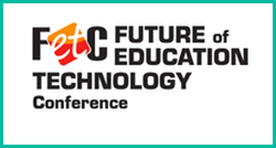
From enhancing participants’ understanding of how to identify dyslexia, to highlighting tools that can enhance instruction, expert presenters will share timely insights.
In this pair of interviews, FETC speakers Nikosi Darnell and Rachel Berger preview some of the strategies they’ll present at the conference. From expert strategies to free tools that increase accessibility, they share valuable perspectives from which educators of all roles can benefit. \
Dr. Nikosi Darnell is a speech-language pathologist and founder of Clearview Speech and Consulting Services. Her efforts are helping to increase the understanding of dyslexia and other speech-language disorders and the individuals most impacted. Although there has been an increased awareness of dyslexia in education, Dr. Darnell believes further advances are possible.
"From a speech pathology perspective, we focus a lot on what we call the 'phonological awareness' and the development of that aspect of communication. Whenever we see children having difficulty with rhyming, segmentation, or pre-linguistics skills, we see the possibility of dyslexia. Sometimes, there are precursors that speech pathologists see before students even get into the classroom on a consistent basis."
The field of speech pathology has slowly seen a paradigm shift in the thinking of how technology can be integrated. “Augmentative and alternative communication devices" that help students who are nonverbal speakers have been integrated, according to Darnell.
To increase her engagement with new technologies, she likes to attend conferences and connect with peers: "Whenever I attend conferences such as FETC, I've gained a different perspective that is much more advanced than [what is available] in our field at this time.”
Using Universal Design to Make Learning About Ability, not Disability
In this interview with Rachel Berger, a Dyslexia & Learning Disabilities Assistive Technologies (AT) Specialist in Minnesota, she previews sessions on accessibility and inclusion, specifically including strategies to support students who struggle with reading and writing.
Berger takes an approach centered around team collaboration, where parents, educators, and community work together to address the needs of the child. Not all students are arriving in a classroom at the same level so available supports need to be tailored to the individual learner.
"I like to say 'ability' versus 'disability,'" says Berger. "[It's important] to access the curriculum, to engage in their learning community, to demonstrate subject matter knowledge, and to grow and learn together."
She describes how an ideal classroom environment should have a universal design approach and foundation: "Content might be relayed in diverse ways such as visual, verbal, and written. There [can] be multiple materials used to engage students such as software, video, art. Students [should] share their learning in diverse ways.”
Visit edCircuit for more interviews with more FETC 2020 presenters












